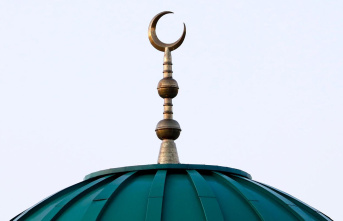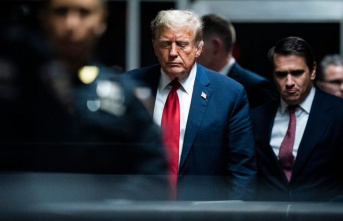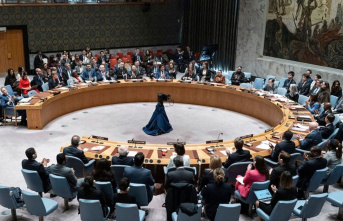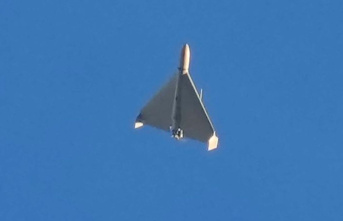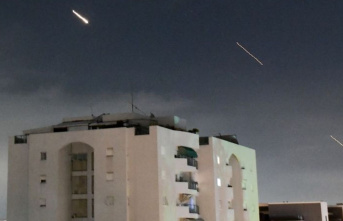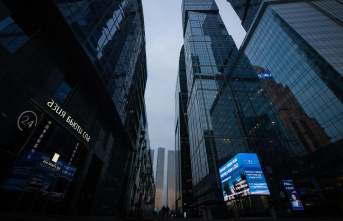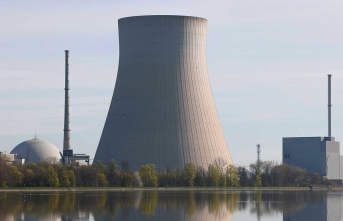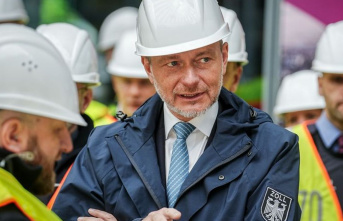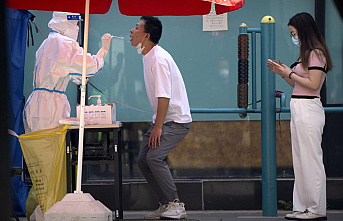His appeals for an Orthodox Easter truce to Ukraine were not heard. The meeting he had planned with the head Russian Orthodox Church was cancelled. Moscow visit? Nyet. His attempt to show Russian-Ukrainian friendship was futile.
Pope Francis has not made much diplomatic impact in Russia's war against Ukraine. He seems unable to leverage his moral authority, soft power, or direct line to Moscow to push for an end to the bloodshed, or at least a ceasefire.
Francis, however, has been forced to explain why he didn't call out Russia or President Vladimir Putin directly -- popes don’t do that -- and defend his "very good" relationships with the head Russian Orthodox Church who justifies the war on spiritual grounds.
They have in Ukraine. Francis sought to be a pastor in his local flock, calling for peace and sending cardinals with humanitarian aid. He even suggested that a Vatican-flagged ship be used to evacuate civilians from Mariupol's besieged port.
He has maintained the Holy See's long-term goal of repairing relations with Russia Orthodox Church. This church split from Rome over 1,000 years ago. Francis had hoped that he would be able to secure a second meeting between Kirill and the Russian Patriarch, even though Moscow was bombing civilians in Ukraine.
Francis revealed recently that the June meeting in Jerusalem was cancelled due to Vatican diplomats thinking it would send a confusing message. He also revealed to an Italian newspaper Tuesday that Francis had offered to travel to Moscow to meet Putin.
Critics say that Francis's continued outreach to Moscow despite reports of atrocities harks to Pope Pius XII's silence, which was criticized by some Jewish groups as not speaking out against the Holocaust. Pius' quiet diplomacy, according to the Vatican, helped save lives.
Anne Leahy, Canada's ambassador in the Holy See between 2008-12, and Russia in the late 90s, stated that Francis is doing all he can with the right priorities to end the war and stop people suffering.
"But he keeps channels of communication open in all ways he can. She said that even if it fails, she believes the idea is to keep trying.
Leahy observed that a pope should have as a priority the Gospel-mandated goal to unify Christians. Therefore, relations with Orthodox Christians must be maintained at the forefront.
She stated that diplomacy is in the service of the church's mission and not vice versa during a telephone interview.
Francis' gestures and words can sometimes seem contradictory. One day, he meets with Kirill for a videoconference that is featured prominently on the Russian Orthodox Church website. It includes a statement saying that both sides have expressed hope for a "just Peace." Three weeks later, Francis kisses the battered Ukrainian flag he received from Bucha, where civilians from Ukraine were shot to death and their hands tied.
This dual-faceted diplomacy has been a tradition at the Vatican for a long time. The policy of "Ostpolitik", which was used during the Cold War meant that the Vatican maintained channels of communication with communist governments on the ground. This was often to the dismay and surprise of the local church.
The Rev. said that Francis' decision to keep the "classic Vatican diplomacy, of dialoguing and not closing the door" approach of Ostpolitik is questionable. Stefano Caprio is professor of church history at Pontifical Oriental Institute.
"Those who are upset at the Pope not defending them more are correct, but those on the diplomatic side who state 'We cannot throw away these relations' are also correct. He said that they were clearly in contradiction.
He said, "But we're not discussing an argument of faith -- it's not about the Holy Trinity persons -- you can have opinions which differ from the pope."
One way to understand Francis's role in the Ukraine conflict is to trace his position in 2014 when Russia annexed Ukraine’s Crimean Peninsula to Russia. The Holy See appeared at most publicly neutral, despite the appeals of Ukrainian Greek Catholics who are a minority Orthodox country for Francis to strongly condemn Moscow.
Francis instead described the conflict as "fratricidalviolence", as though both sides were equally responsible and the conflict was internal to Ukraine.
John McCarthy, Australia's ambassador at the Vatican at that time, stated that 2014 was a difficult year for him. Their priority was to establish a relationship with Kirill.
Francis finally got the long-awaited meeting. He embraced Kirill in a VIP area of the Havana airport, Cuba on February 12, 2016, the first meeting between a pope and a Russian patriarch since 1054 Schism.
The joint statement signed by the two men was celebrated at the time by the Holy See as a breakthrough in ecumenical relationships. It angered the Ukrainian Greek Catholics, however, as it called them an "ecclesial community" and did not mention Russia's involvement in the separatist conflict in east Ukraine.
Fast forward to 2022 and Francis has once again upset the Ukrainian church. The Vatican had suggested that a Ukrainian woman and a Russian woman should carry the cross during the torchlit Good Friday procession of the Colosseum. This gesture was made before Francis' Easter appeal for a truce that was ignored, and it was meant to demonstrate the possibility of future Russian–Ukrainian reconciliation.
The Ukrainian ambassador objected to the proposal. Archbishop Sviatoslav Shyuk, head of the Greek Orthodox faithful in Ukraine, called it "inopportune" and "ambiguous", since it did not take into account the fact that Russia invaded Ukraine.
In the end, Vatican conceded: The women carried the cross, but instead of reading aloud the meditation calling for reconciliation, they stood in silent prayer.
Leahy, the ex-Canadian ambassador, stated that the result was a classic example in papal pastoral care bridging Vatican Diplomacy. Francis listened carefully to Shevchuk and modified the ritual while maintaining his larger agenda of dialogue with Russia.
She recalled that the Italian word for bridge, "pontiff", derives its name from the Italian word for diplomat. "It's the job a diplomat has, and certainly a supreme pontiff, to keep the channels open.
The Rev. Roberto Regoli is a professor of church history at the Pontifical Gregorian University and an expert on papal diplomacy. He said that these diplomatic channels with Orthodox Christians are crucial now as well as in the future, when Ukraine will need to be rebuilt.
He stated that reconstruction of a country requires all forces to be involved, including religious ones. These channels should be kept open for both the present and the future because rebuilding a country will take many decades.


